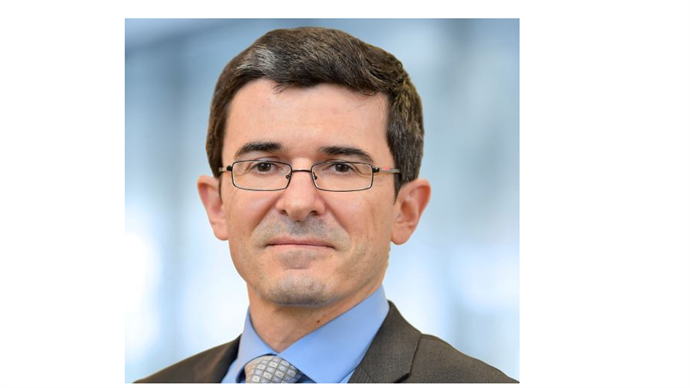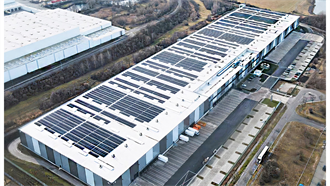A little over 10 years on from the global financial crisis, there is now mounting evidence to suggest that many developed economies are in the later stages of expansion – including across Europe, writes Mahdi Mokrane, Head of Research & Strategy, Europe - LaSalle Investment Management.
For investors across asset classes, this ‘late-cycle’ period is characterised by greater volatility and lower expected benchmark returns, set against a backdrop of gradual global interest rate normalisation. This poses the question of whether investors should accept the lower returns generated by more defensive assets or pursue higher-return, higher-risk strategies but more prone to being derailed by an economic slowdown. Our firm belief is that a combination of defensive and offensive real estate strategies can offer value to investors the current market environment. Opportunities exist in both the UK and Continental Europe, mainly across the industrial and logistics and the office sector, as well as in real estate debt.
Industrial and logistics is currently the standout sector in the UK, driven by the rise of e-commerce. Demand for urban locations and edge-of-town ‘fulfilment’ centres is generating intense competition for land that might previously have had residential uses and, in turn, is fuelling significant rental growth. Owners of multi-let industrial developments that serve major urban locations therefore enjoy exposure to a highly attractive risk-adjusted proposition. In Continental Europe, this sector has similarly thrived over the past decade, driven by the structural factor of the rise of e-commerce and the more cyclical recent economic and industrial recovery.
However, rental growth on the Continent is muted compared to the UK and US, both in terms of historic increases in recent years, primarily across a small number of submarkets in Germany, as well as in terms of projected rises in the years ahead, which will be concentrated in France, Italy, and Spain. Nonetheless, income returns will be robust in the medium term and will help drive investment performance.
Investors seeking defensive assets should focus on centrally located office submarkets, including well-connected central districts outside of the CBD, with German offices looking particularly well suited here. In the UK, albeit receding the possibility of a no-deal or bad Brexit significantly raises the risk profile of office properties, especially in London, where demand would be most diminished by a disorderly departure from the EU. This risk notwithstanding, however, the UK’s labour market remains one of the deepest, most flexible, and highly skilled in Europe, with London still attracting financial and business services firms, technology businesses and expanding global retailers and offering reduced supply as tenants seek to create modernised, amenity-rich spaces.
The risk profile of retail assets similarly appears to be greater in the UK than in the rest of Europe and without the same prospects for strong medium- to long-term rental growth enjoyed by offices. The distress in the sector, created primarily by strong online retail penetration in the UK market, has prompted broadly flat at best or negative rental growth projections for 2019-2020, with best-in-class, “omni-channel-ready” shopping centres being the assets best positioned to buck this trend. For longer-term investors, however, the sharp drop in valuations should open up attractive entry points into this market.
In 2019, structured finance and special situations (whole loans, mezzanine debt, and preferred equity) are going to be increasingly attractive given the regulatory framework facing traditional lenders. Alternative lenders who can offer attractively priced real estate debt solutions in the form of whole loans, stretched senior, mezzanine, or preferred equity. are well placed to service the UK market and generate high-yield coupons.
2019 marks an opportune time to begin steadily adjusting down risk allocations. But while it may be quite rational to upweight more resilient strategies given the rather late stage in the cycle we are in, there are clearly cyclical differences in the various real estate strategies, there are also specific higher-return strategies that can outperform core, even during and following a downturn. We therefore believe it’s possible to assemble a diversified and risk-weighted portfolio with the potential to outperform lower expected benchmark returns as we enter the later stages of the cycle.
https://www.lasalle.com/contact#europe
Europe:
AMSTERDAM
Simon Carmiggeltstraat 12
Amsterdam, DJ 1011
Netherlands
Phone: +31 20 530 8888
Fax: +31 20 530 8890
LONDON
One Curzon Street
London, W1J 5HD
United Kingdom
Phone: +44 20 7852 4200
Fax: +44 20 7852 4404
LUXEMBOURG
Centre Place de Paris 41
Avenue de la Liberte L-1931
Luxembourg
Phone: +00352 26 86 89 1
Fax: +00352 26 86 89 38
MADRID
Paseo de la Castellana 79
4a planta
Madrid, 28046
Spain
Phone: + 00 34 91 745 33 12
Fax: + 00 34 91 745 33 13
MILAN
Via Agnello 8
Milan, 20121
Italy
Phone: +39 02 3601 0502
MUNICH
Viktualienmarkt 8
Munich, 80331
Germany
Phone: +49 89 21 11 130
Fax: +49 89 21 11 13 13
PARIS
112 Avenue Kléber
Cedex 16
Paris, 75784
France
Phone: +33 1 56 43 46 46
Fax: +33 1 56 43 46 40
PRAGUE
Burzovní Palác - Regus
Rybná 682/14
Prague 1, 110 00
Czech Republic
Phone: +420 222 191 408




































